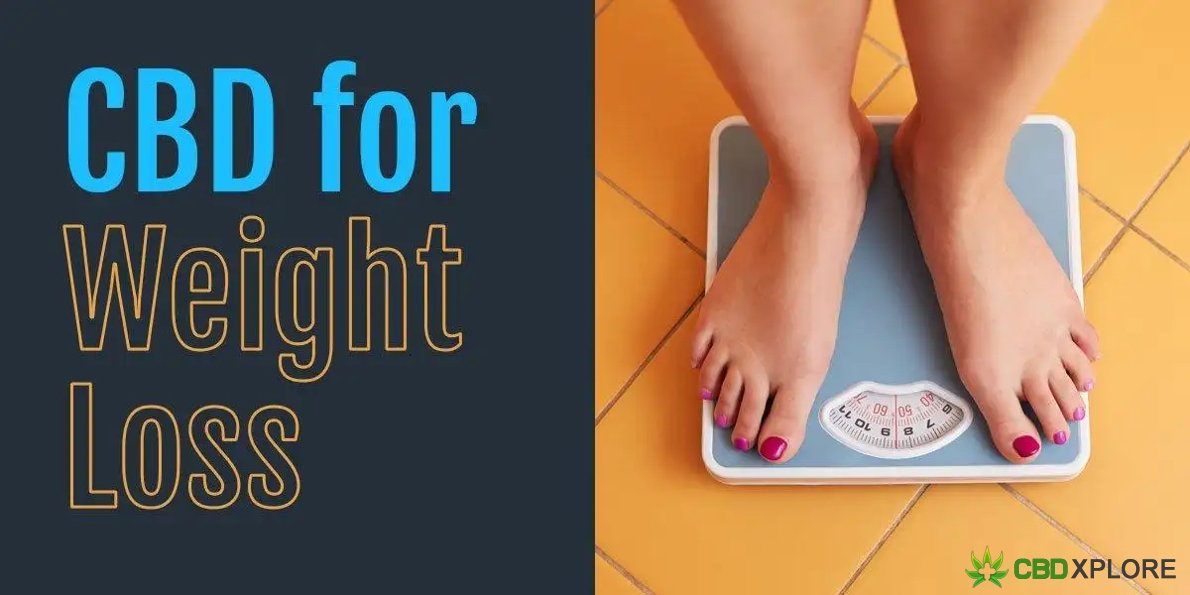Can CBD Help You Lose Weight? The Science Behind Fat Burning and Appetite Control
In this comprehensive guide, you will explore that can CBD help you lose weight and the science behind how CBD interacts with your metabolism.

In recent years, CBD (cannabidiol) has gained massive popularity as a natural remedy for various health issues, from anxiety to chronic pain. However, a question that is now emerging in the health and wellness space is, “Can CBD help you lose weight?” As obesity rates climb and people search for effective weight management solutions, CBD is being spotlighted for its potential role in fat burning and appetite regulation.
In this comprehensive guide, we will explore the science behind how CBD could support weight loss, how it interacts with your metabolism, and whether it can truly assist with appetite control. We’ll also discuss the importance of using CBD as part of a broader healthy lifestyle.
Explore the Contents
- 1 Understanding CBD and the Endocannabinoid System
- 2 Can CBD Boost Metabolism and Promote Fat Browning?
- 3 CBD and Appetite Control: Does It Curb Cravings?
- 4 CBD and Insulin Resistance: A Hidden Benefit?
- 5 Stress, Anxiety, and Emotional Eating: CBD’s Indirect Role in Weight Loss
- 6 How to Use CBD for Weight Loss: Best Practices
- 7 The Role of CBD vs. THC in Weight Loss
- 8 Are There Any Side Effects of Using CBD for Weight Loss?
- 9 Final Thoughts: Can CBD Help You Lose Weight?
- 10 Frequently Asked Questions (FAQs)
Understanding CBD and the Endocannabinoid System
To grasp how CBD may help you lose weight, it’s essential first to understand the endocannabinoid system (ECS). The ECS is a complex network of receptors, enzymes, and endocannabinoids found throughout your body, including your brain, immune system, and digestive tract. It plays a vital role in regulating various functions such as mood, appetite, metabolism, and pain sensation.
Unlike THC (tetrahydrocannabinol), which is the psychoactive compound in cannabis, CBD does not produce a “high.” Instead, CBD interacts indirectly with the ECS, mainly by influencing CB1 and CB2 receptors involved in homeostasis (balance within the body). These interactions may have significant implications for weight management.
Can CBD Boost Metabolism and Promote Fat Browning?
One of the most intriguing scientific findings is the possibility that CBD can stimulate “fat browning”. In simple terms, there are two main types of fat in your body: white fat and brown fat.
- White fat stores excess calories and is associated with obesity and other metabolic disorders.
- Brown fat burns calories to generate heat and is linked to healthier metabolic profiles.
A 2016 study published in Molecular and Cellular Biochemistry found that CBD may encourage the conversion of white fat cells into brown fat cells. This process, often referred to as “fat browning,” is essential for enhancing your body’s ability to burn calories and could potentially contribute to weight loss.
Additionally, the same study suggested that CBD can stimulate the body’s breakdown of fats (lipolysis) and inhibit the formation of new fat cells (lipogenesis). These findings provide early but promising insights into how CBD might help support weight loss by promoting a more efficient metabolism.
CBD and Appetite Control: Does It Curb Cravings?
One of the most frequently asked questions is, “Does CBD suppress appetite?” Unlike THC, which is known for increasing hunger (the so-called “munchies”), CBD may have the opposite effect.
CBD interacts with the ECS and may influence hunger-related hormones such as ghrelin (the hunger hormone) and leptin (the satiety hormone). Early research suggests that CBD could help regulate these hormones, promoting feelings of fullness and potentially reducing overeating.
A study published in Psychopharmacology highlighted that cannabinoids like CBD may affect feeding behavior by modulating brain areas responsible for hunger and satiety. While more human studies are needed, anecdotal evidence shows that many people experience decreased food cravings and better appetite control when using CBD.
CBD and Insulin Resistance: A Hidden Benefit?
Another significant factor in weight management is insulin sensitivity. Insulin resistance is a condition where your cells don’t respond effectively to insulin, leading to high blood sugar levels and an increased risk of obesity and type 2 diabetes.
Preliminary research indicates that CBD may improve insulin sensitivity and reduce inflammation linked to insulin resistance. In a study published in Autoimmunity, CBD was found to have anti-inflammatory properties that could lower the risk of developing insulin resistance-related conditions.
Since inflammation plays a crucial role in obesity and metabolic disorders, CBD’s ability to reduce chronic inflammation could indirectly support weight loss efforts by improving your body’s insulin response.
Stress, Anxiety, and Emotional Eating: CBD’s Indirect Role in Weight Loss
One of the less obvious but equally important ways CBD can help you lose weight is through its impact on stress and emotional eating. Chronic stress is a well-known trigger for emotional eating and increased calorie consumption.
CBD is widely recognized for its anxiolytic (anxiety-reducing) properties. It interacts with serotonin receptors (5-HT1A) in the brain, promoting a sense of calm and well-being. By reducing stress and anxiety levels, CBD may help prevent stress-induced overeating, allowing you to make healthier food choices and stick to your dietary goals.
A calmer mind means fewer late-night cravings, less binge eating, and a more balanced approach to nutrition, all of which contribute to sustainable weight management.
How to Use CBD for Weight Loss: Best Practices
If you’re considering incorporating CBD to help you lose weight, it’s crucial to use it wisely and in conjunction with other healthy lifestyle choices. Here are some best practices:
1. Choose High-Quality CBD Products
Look for full-spectrum or broad-spectrum CBD oils, capsules, or edibles from reputable brands. Ensure products are third-party tested for purity and potency.
2. Start with a Low Dose
When starting CBD for weight loss, begin with a low dose and gradually increase it to find your optimal dosage. Everyone’s body is different, and the correct dosage may vary based on body weight, metabolism, and individual needs.
3. Incorporate CBD Into Your Wellness Routine
Use CBD as a complement to a healthy diet, regular exercise, and stress management techniques like meditation or yoga. While CBD may support fat burning and appetite control, it is not a magic solution and should be part of a holistic approach.
4. Be Consistent
For best results, consistency is key. Taking CBD regularly allows it to interact with your ECS over time, maximizing its potential benefits for weight management.
The Role of CBD vs. THC in Weight Loss
It’s also important to distinguish the different effects of CBD and THC when it comes to weight loss. THC is known to increase appetite, while CBD appears to modulate appetite without stimulating excessive hunger.
Additionally, CBD may counteract some of the psychoactive effects of THC, making it a more suitable option for those looking to lose weight without experiencing mind-altering effects.
For those who live in regions where cannabis is legal, some people experiment with CBD-dominant strains or products that have a balanced CBD to THC ratio to fine-tune their experience.
Are There Any Side Effects of Using CBD for Weight Loss?
CBD is generally well-tolerated, with minimal side effects reported in most studies. However, some individuals may experience:
- Mild digestive discomfort
- Fatigue
- Changes in appetite (which could be either an increase or decrease)
It is always recommended to consult with a healthcare provider before starting CBD, especially if you are taking medications or have pre-existing health conditions.
Final Thoughts: Can CBD Help You Lose Weight?
So, can CBD help you lose weight? The answer is promising but nuanced. While early research and anecdotal evidence suggest that CBD may boost metabolism, promote fat browning, regulate appetite, and reduce emotional eating, more human studies are needed to fully confirm its effectiveness as a weight loss aid.
That said, CBD could be a valuable tool to support a healthy lifestyle, especially when paired with balanced nutrition, exercise, and stress management. By improving overall well-being and helping to regulate systems that influence hunger and fat metabolism, CBD may indirectly contribute to weight loss success.
As always, approach CBD as part of a comprehensive health and wellness plan to achieve the best results.
Frequently Asked Questions (FAQs)
1. How fast can you lose weight with CBD?
CBD is not a quick fix. Any weight loss related to CBD use will likely occur gradually and in combination with healthy lifestyle changes like improved diet and exercise.
2. What is the best CBD product for weight loss?
Full-spectrum CBD oil or CBD capsules are commonly recommended due to their convenience and the presence of other beneficial cannabinoids and terpenes.
3. Can CBD replace a healthy diet or exercise?
No. While CBD may help you lose weight indirectly, it should never replace a nutritious diet or physical activity. It works best as a supportive tool.





